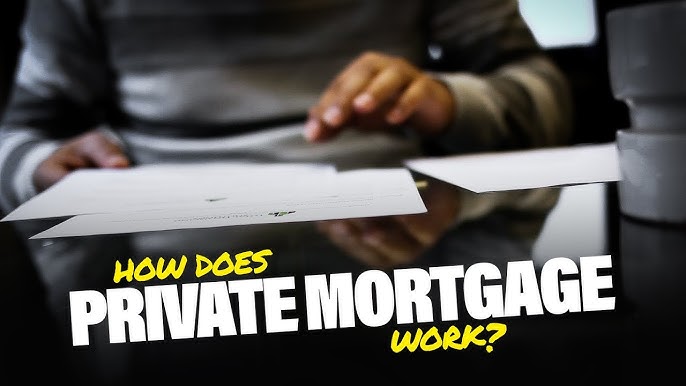Just how It Works: A Comprehensive Overview to Mortgage Lending for First-Time Buyers
Navigating the world of mortgage lending can be daunting for first-time purchasers. Comprehending the fundamental components like principal, rate of interest, and deposits is crucial. Additionally, recognizing the various kinds of mortgage and the application process can substantially affect one's experience. By checking out crucial aspects that influence interest rates, buyers might reveal useful understandings. What else should they think about before making such a considerable financial commitment?
Comprehending Mortgage Basics
When first-time purchasers go into the domain of homeownership, recognizing mortgage essentials ends up being important for making notified choices. A home mortgage is essentially a lending safeguarded by the home being bought, allowing people to get a home without paying the full cost upfront. Buyers have to recognize vital elements, including principal, passion, taxes, and insurance, frequently summed up as PITI. The principal is the quantity borrowed, while interest is the price of borrowing that quantity, expressed as a percent. Taxes and insurance are extra costs that can considerably influence monthly settlements. Purchasers should likewise take into consideration the car loan term, typically 15 or 30 years, which impacts repayment quantities and overall rate of interest paid. Recognizing credit report is important, as they affect car loan eligibility and rates of interest. Realizing these essential concepts encourages first-time purchasers to browse the mortgage landscape with confidence and make options that line up with their financial objectives.
Types of Mortgage Loan
When thinking about mortgage alternatives, first-time buyers commonly encounter two primary types: fixed-rate and adjustable-rate mortgages. Fixed-rate mortgages supply security with regular settlements over the financing's term, while variable-rate mortgages can provide lower preliminary rates that may vary in time. Comprehending these distinctions is necessary for making an educated decision.
Fixed-Rate Home mortgages
Fixed-rate home loans supply security and predictability for newbie buyers navigating the complexities of home funding. With a fixed-rate mortgage, the rate of interest stays constant throughout the funding term, normally ranging from 15 to 30 years. This consistent price permits customers to intend their spending plans successfully, understanding that their month-to-month repayments will not fluctuate. Newbie buyers take advantage of this framework as it removes uncertainty in long-term economic dedications. In addition, fixed-rate home mortgages often include reduced initial rates compared to adjustable-rate options, making them an appealing choice for those aiming to establish home equity with time. In general, fixed-rate mortgages provide a straightforward path to homeownership, perfect for individuals looking for lasting monetary security.
Adjustable-Rate Mortgages
For newbie buyers seeking versatility, adjustable-rate home loans (ARMs) can give an attractive alternative to fixed-rate financings. ARMs commonly provide lower initial passion rates, making regular monthly settlements extra economical in the very early years. These prices rise and fall after an initial fixed period, which can lead to raised payments over time. Debtors should understand the index and margin that figure out future price modifications. Generally, ARMs have adjustment periods of one, three, or 5 years, with routine caps to restrict how much rates can boost at each change. While ARMs can be advantageous for those preparing to market or refinance before the rate adjusts, they also lug threats if market problems alter substantially. Extensive research study is necessary for educated decision-making.
The Mortgage Application Process

Key Variables Affecting Rate Of Interest Rates

Deposits and Closing Prices
Understanding down payments and closing expenses is crucial for first-time homebuyers, as these expenses considerably influence the total price of a home mortgage. A down repayment is the initial amount paid in the direction of the home's purchase rate, commonly revealed as a percentage. It can range from as low as 3% to 20% or even more, depending on the lending kind and lending institution needs. A bigger deposit can decrease regular monthly mortgage repayments and eliminate personal mortgage insurance coverage (PMI), which secures lending institutions in situation of default.Closing prices, on the various other hand, incorporate numerous fees sustained throughout the home-buying process. These may consist of lending origination costs, assessment costs, title insurance policy, and attorney fees, typically totaling 2% to 5% of the home's acquisition rate. Novice customers must allocate both deposits and shutting expenses to assure they can protect their mortgage and successfully browse the home-buying process.
Tips for First-Time Homebuyers
What essential ideas can newbie click here now buyers follow to navigate the frequently tough process of acquiring a home? Initially, establishing a reasonable spending plan is essential. Purchasers should examine their financial circumstance, consisting of income, expenditures, and prospective mortgage payments. Next off, getting pre-approval for a home mortgage can offer quality on what one can pay for and strengthen their setting when making an offer.Researching neighborhoods is similarly vital; buyers ought to consider aspects such as features, institutions, and future growths. In addition, it is a good idea to function with a certified property agent that can supply valuable insights and assistance throughout the purchasing process.Home examinations need to not be neglected, as they can uncover covert issues that may affect long-term satisfaction. Buyers must continue to be patient and versatile, understanding that discovering the ideal home may take time. By following these suggestions, new buyers can approach the marketplace with self-confidence and expertise.
Often Asked Concerns
What Files Are Required for Mortgage Pre-Approval?
For mortgage pre-approval, individuals usually need to offer income confirmation, work background, credit score reports, income tax return, financial institution statements, and details of any kind of financial debts (Private Mortgage Lenders Savannah GA). These papers assist loan providers evaluate economic ability and identify lending eligibility
Can I Get a Home Loan With Bad Credit?

Lots of loan providers take into consideration candidates with negative credit score, though terms may vary. Greater rate of interest or bigger down repayments might be called for. Checking out alternatives with specialized lenders or government programs can additionally my link improve possibilities for approval.
Exactly how Lengthy Does the Mortgage Approval Process Take?
The mortgage approval procedure typically takes between 30 to 45 days. Variables influencing this timeline consist of the lender's effectiveness, the consumer's financial documentation, and the complexity of the loan application. Delays may happen as a result of additional requirements.
What Occurs if I Miss a Home Loan Settlement?
If a mortgage payment is missed, late charges might be sustained, and credit history can endure. Prolonged non-payment may lead to foreclosure proceedings, prompting the lender to reclaim the residential property after a series of warnings.
Can I Refinance My Mortgage Later?
Refinancing a mortgage later is typically possible, allowing homeowners to change their finance terms, rates of interest, or monthly settlements. Nonetheless, eligibility depends upon credit history scores, present market conditions, and the existing mortgage's terms. Private Mortgage Lenders Savannah GA.